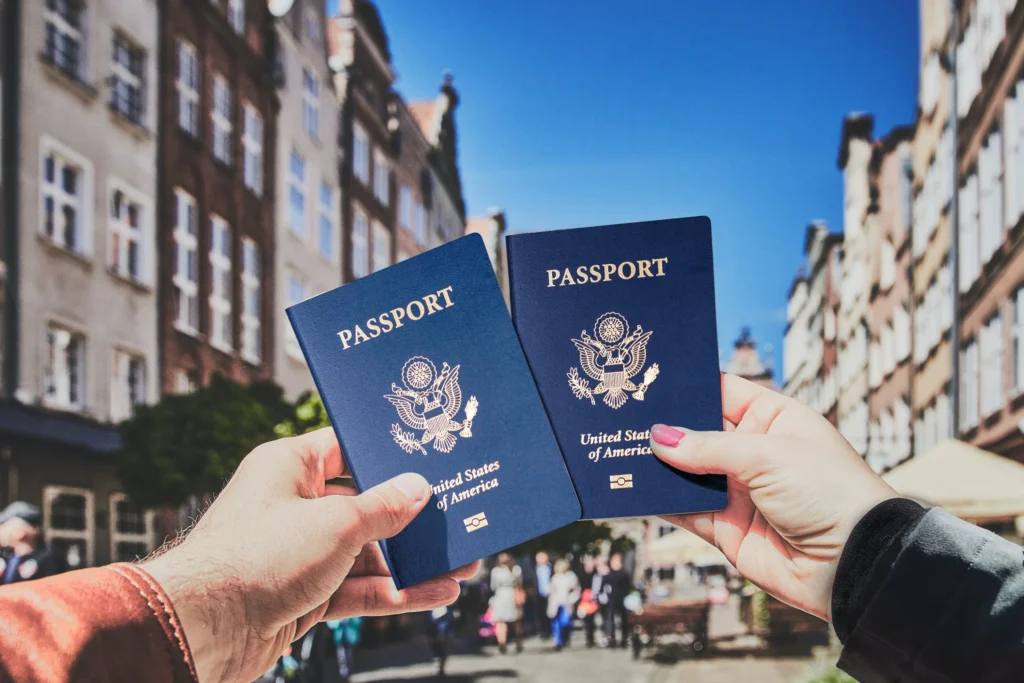SECOND PASSPORT

A second passport, also known as dual citizenship, provides individuals with legal recognition and rights as citizens of two countries simultaneously. Obtaining a second passport can offer various advantages, including enhanced travel freedom, expanded business opportunities, increased personal security, and access to social benefits and services.
Things To Know About Second Passport
1. What is a Second Passport? A second passport grants individuals citizenship in addition to their primary citizenship, allowing them to hold passports from two different countries. This status may be acquired through birth, ancestry, marriage, naturalization, or investment in citizenship programs offered by certain countries.
2. Benefits of Second Passports:
- Enhanced travel freedom: Holding a second passport can provide access to a broader range of countries without visa restrictions or entry limitations, facilitating easier international travel for business, leisure, and personal purposes.
- Expanded business opportunities: Dual citizenship can open doors to new business ventures, investments, and professional opportunities in multiple countries, allowing individuals to diversify their assets and expand their global reach.
- Increased personal security: Second passports offer a safety net in times of political instability, social unrest, or emergencies, providing individuals with options for relocation, evacuation, or seeking refuge in their alternate country of citizenship.
- Access to social benefits and services: Dual citizens may be entitled to social welfare programs, healthcare services, education benefits, and other privileges offered by each of their respective countries of citizenship.
- Tax planning and optimization: Dual citizenship can provide opportunities for tax planning and optimization strategies, including tax residency options, favorable tax regimes, and asset protection measures in different jurisdictions.
3. Ways to Obtain a Second Passport:
- By descent: Some countries grant citizenship to individuals based on their ancestry or familial ties, allowing eligible descendants to claim citizenship rights and obtain passports.
- By marriage: Marriage to a citizen of another country may confer eligibility for citizenship and passport privileges, depending on the laws and regulations of the spouse’s country of citizenship.
- By naturalization: Eligible individuals may acquire citizenship through naturalization by fulfilling residency requirements, passing language and citizenship tests, and demonstrating good character and integration into the society of the host country.
- By investment: Some countries offer citizenship-by-investment or residency-by-investment programs, where individuals can obtain citizenship or residency status in exchange for making qualifying investments, such as real estate purchases, business investments, or donations to government funds.
4. Considerations for Obtaining a Second Passport:
- Legal implications: Before pursuing a second passport, individuals should consider the legal implications, obligations, and potential consequences associated with dual citizenship, including military service requirements, tax obligations, and legal rights and responsibilities in each country.
- Costs and fees: Obtaining a second passport may involve significant costs, including application fees, legal expenses, investment requirements, and ongoing maintenance expenses, which should be carefully evaluated and budgeted.
- Renunciation of previous citizenship: Some countries require individuals to renounce their previous citizenship(s) upon acquiring a second passport, which may have implications for identity, allegiance, and familial ties that should be carefully considered.
5. Utilizing Second Passports:
- Travel benefits: Dual citizens can enjoy expedited entry, visa-free travel, and access to diplomatic assistance and consular services when traveling with their second passport.
- Business opportunities: Second passports can facilitate international business transactions, cross-border investments, and participation in global markets, providing flexibility and strategic advantages in business endeavors.
- Personal security: In times of political unrest, conflict, or emergencies, dual citizenship provides individuals with options for relocation, evacuation, or seeking assistance and protection from their alternate country of citizenship.
All Services
Need Help?
Ready to take the next step? Contact us now to start your journey towards peace of mind and worry-free travel experiences. Click here to reach out to our friendly team and discover how we can help make your travel dreams a reality.
FAQ
Yes, dual citizens can travel with both passports and may choose which passport to use based on factors such as visa requirements, entry restrictions, and personal preferences. It’s essential to comply with the immigration laws and regulations of each country when traveling with multiple passports.
In some cases, individuals may be required to disclose their second citizenship when applying for visas, residency permits, or government positions. It’s essential to be transparent and comply with the disclosure requirements of each country of citizenship to avoid legal issues or consequences.
Dual citizenship may be subject to certain conditions, such as residency requirements, loyalty oaths, or criminal convictions, which could lead to loss of citizenship in one or both countries. It’s essential to understand the rules and regulations governing dual citizenship and maintain compliance to avoid loss of citizenship status.
Some countries impose restrictions on dual citizenship, such as limitations on political rights, eligibility for government positions, or ownership of property. It’s important to research and understand the laws and regulations governing dual citizenship in each country to ensure compliance and avoid legal issues.

